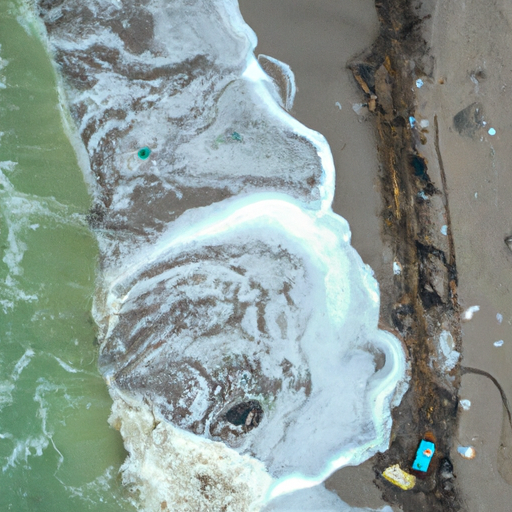-
Table of Contents
What will happen if we don’t stop pollution in the ocean?

Ocean pollution is a pressing issue that poses severe consequences for marine life and the future of our sea environment. If we fail to take immediate action to stop pollution in the ocean, the negative impacts will be catastrophic. This article explores the potential consequences of ocean pollution, the threats it poses to marine life, and the future of our sea environment.
Ocean Pollution Consequences
Ocean pollution has far-reaching consequences that affect not only marine life but also human health and the overall ecosystem. Some of the key consequences of ocean pollution include:
- 1. Destruction of Coral Reefs: Coral reefs are delicate ecosystems that provide a habitat for numerous marine species. Pollution, such as chemical runoff and oil spills, can lead to the destruction of coral reefs, resulting in the loss of biodiversity and the collapse of entire ecosystems.
- 2. Harm to Marine Animals: Pollution in the ocean can harm marine animals in various ways. Plastic waste, for example, can be mistaken for food by marine animals, leading to ingestion and entanglement. This can cause injury, suffocation, and even death.
- 3. Disruption of the Food Chain: Ocean pollution can disrupt the delicate balance of the marine food chain. Contaminants in the water can accumulate in the bodies of small marine organisms, which are then consumed by larger predators. This bioaccumulation can lead to the poisoning and death of top predators, causing a ripple effect throughout the entire ecosystem.
- 4. Negative Impact on Human Health: Ocean pollution not only affects marine life but also poses risks to human health. Consuming contaminated seafood can lead to various health issues, including mercury poisoning and the ingestion of harmful chemicals.
These consequences highlight the urgent need to address ocean pollution and implement effective measures to prevent further damage to our marine ecosystems.
Marine Life Threats
Ocean pollution poses significant threats to marine life, jeopardizing the survival of various species. Some of the major threats include:
- 1. Plastic Pollution: Plastic waste is one of the most significant threats to marine life. It is estimated that millions of marine animals die each year due to plastic ingestion or entanglement. Plastic debris can suffocate marine animals, block their digestive systems, and cause severe injuries.
- 2. Chemical Pollution: Chemical pollutants, such as oil spills and industrial waste, contaminate the ocean and have detrimental effects on marine life. These pollutants can disrupt reproductive systems, impair growth and development, and weaken the immune systems of marine organisms.
- 3. Overfishing: Overfishing is another threat to marine life. Unsustainable fishing practices deplete fish populations, disrupt the balance of marine ecosystems, and threaten the survival of many species. This can have cascading effects on the entire food chain.
To learn more about the impact of plastic pollution on marine life, you can visit Marine Conservation Australia.
Sea Environment Future
The future of our sea environment is at stake if we fail to address ocean pollution effectively. Without immediate action, we can expect the following scenarios:
- 1. Extinction of Marine Species: The continued pollution of the ocean will lead to the extinction of numerous marine species. This loss of biodiversity will disrupt the delicate balance of marine ecosystems and have long-term consequences for the overall health of our oceans.
- 2. Decline in Seafood Resources: Ocean pollution not only affects marine life but also impacts the availability of seafood resources. Overfishing, combined with pollution, can lead to the depletion of fish populations, making it harder for communities that rely on fishing for their livelihoods to sustain themselves.
- 3. Irreversible Damage to Ecosystems: The damage caused by ocean pollution may reach a point of no return, where ecosystems are irreversibly damaged. This could result in the collapse of entire marine ecosystems, leading to the loss of essential services they provide, such as oxygen production and climate regulation.
It is crucial that we take immediate action to prevent these dire consequences and protect our oceans for future generations. By reducing plastic waste, implementing sustainable fishing practices, and promoting responsible waste management, we can make a positive impact on the health of our oceans.
Remember, the future of our sea environment depends on the actions we take today.